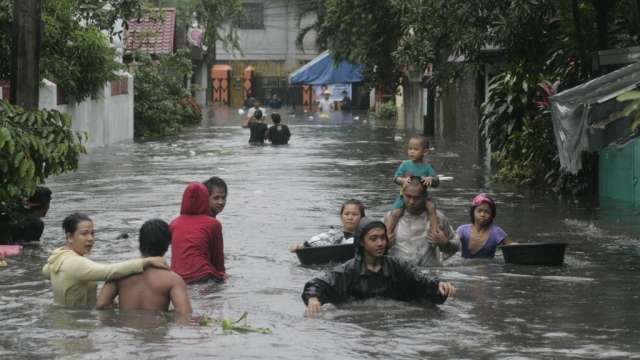PMCJ statement on the Rio+20 Conference and the Green Economy
As world leaders gather at the United Nations’ Rio+20 Conference on Sustainable Development in Brazil, the Philippine Movement for Climate Justice (PMCJ) joins other progressive movements across Asia and the rest of the globe in calling for the rejection of the Green Economy being peddled as the main pathway to sustainable development.
The Rio+20 Summit was envisioned as a global assessment and reckoning point on how far governments have gone in delivering on commitments to sustainable development and poverty eradication made two decades ago at the first Earth Summit in Rio in 1992.
There can be no sustainable development, when the planet is dead. That is why it is important for this Rio+20 gathering to clearly affirm the Rio Principles, and stay true to the obligations of developed countries to provide financing, technology transfer and capacity-building to the developing countries.
For communities in the Philippines who continue to struggle daily against poverty, marginalization and the devastating effects of ecologically destructive projects and policies, it is clear that we have not moved closer to the shared vision of a more equitable and sustainable world.
It is also clear that what is needed at this critical conjuncture as humanity faces multiple and interrelated crises of food, energy, finance and the economy, the environment, and climate is a major paradigm shift away from the current capitalist model of development.
The Green Economy agenda which has become the central point of discussion in Rio, does not represent the transformation in the system that is necessary to address the global crises and will not lead to the future that we want. On the contrary, the Green Economy represents yet another scheme to repackage an old and discredited system that continues to impoverish and marginalize peoples and communities.
We reject the commodification of nature; the idea of treating nature as capital and putting a price tag on the free services provided by nature to be able to sell and buy ecosystems and nature’s services in new markets which will be created for these purposes
While the agenda to develop a market for ecosystem services is being pushed supposedly to ensure that peoples and communities realize greater benefit from the true value of nature and to ensure the greater protection of the resources, it is quite obvious that those who will benefit from these new markets and new market mechanisms would only be corporations who seek to expand ownership and control over nature and generate profits from the sale of nature’s services.
From the standpoint of climate justice, it is also clear that market mechanisms like CDM and REDD+ tallow Annex 1 countries to sidestep their commitments to reduce their carbon emissions through offset projects elsewhere rather than through efforts in their own countries are false solutions to the climate crisis.
We are deeply concerned and strongly disagree therefore with the position taken by the Philippine government, based on its submission to the Rio+20 Conference that is fully supportive of the institutionalization of markets for ecosystem services. Whatever perceived future financial gains from the sale of ecosystem services will be at the expense of more long term solutions to the climate crisis, will concentrate control of nature and its services to elites and corporations and will undermine the prospects towards a more equitable and sustainable future for Filipinos.#
Contact persons:
In Manila: Joseph Purugganan, Focus on the Global South/PMCJ- [email protected]. Tel. +639173874531
In Rio: Lidy Nacpil, Jubilee South-APMDD/PMCJ [email protected]




![[AEPF] FIND AND PUNISH ANOUSA’S ATTACKERS; END VIOLENCE AND IMPUNITY!](https://focusweb.org/wp-content/uploads/2023/05/Photo-C-e1683192637583-440x264.jpeg)





